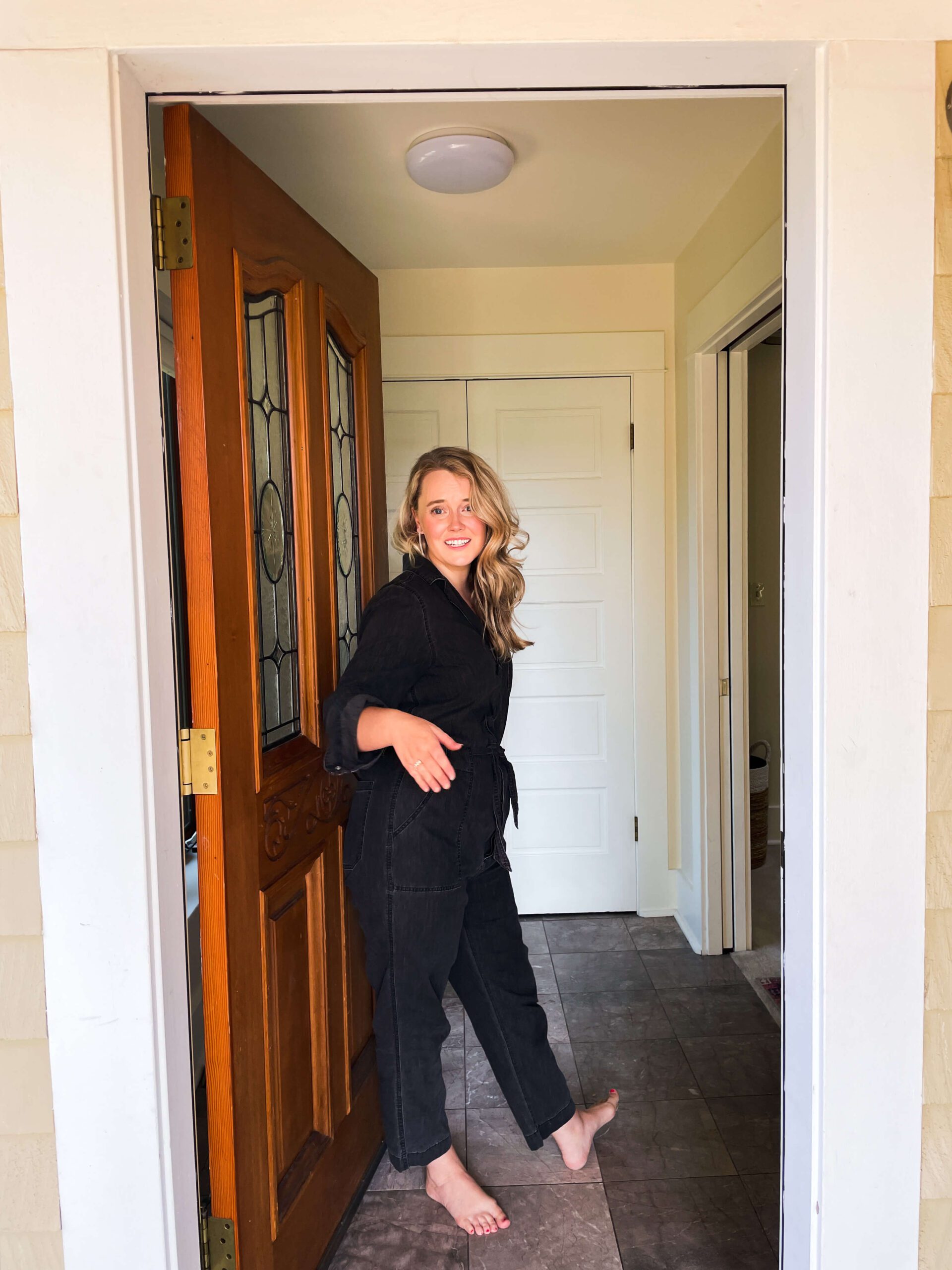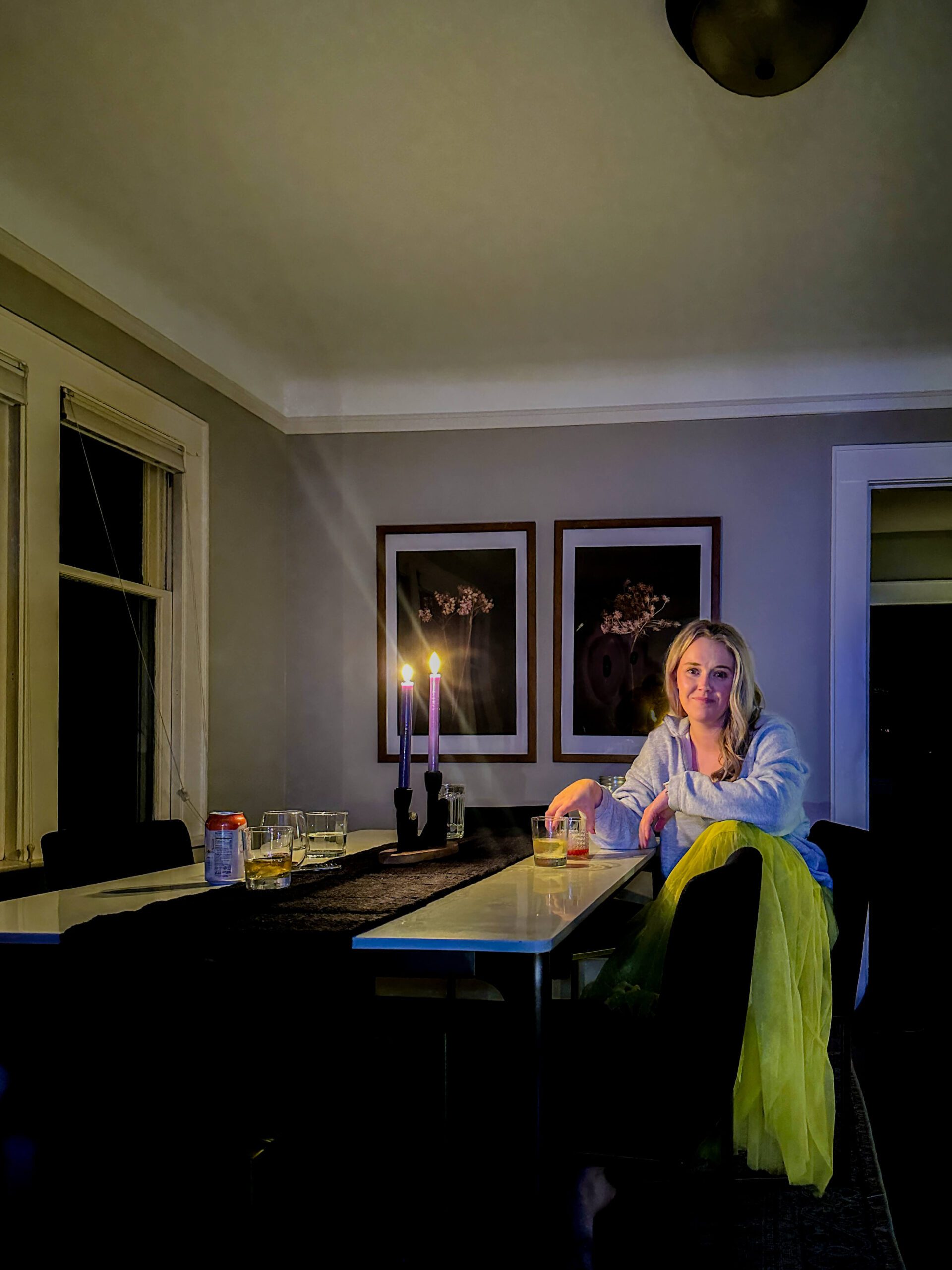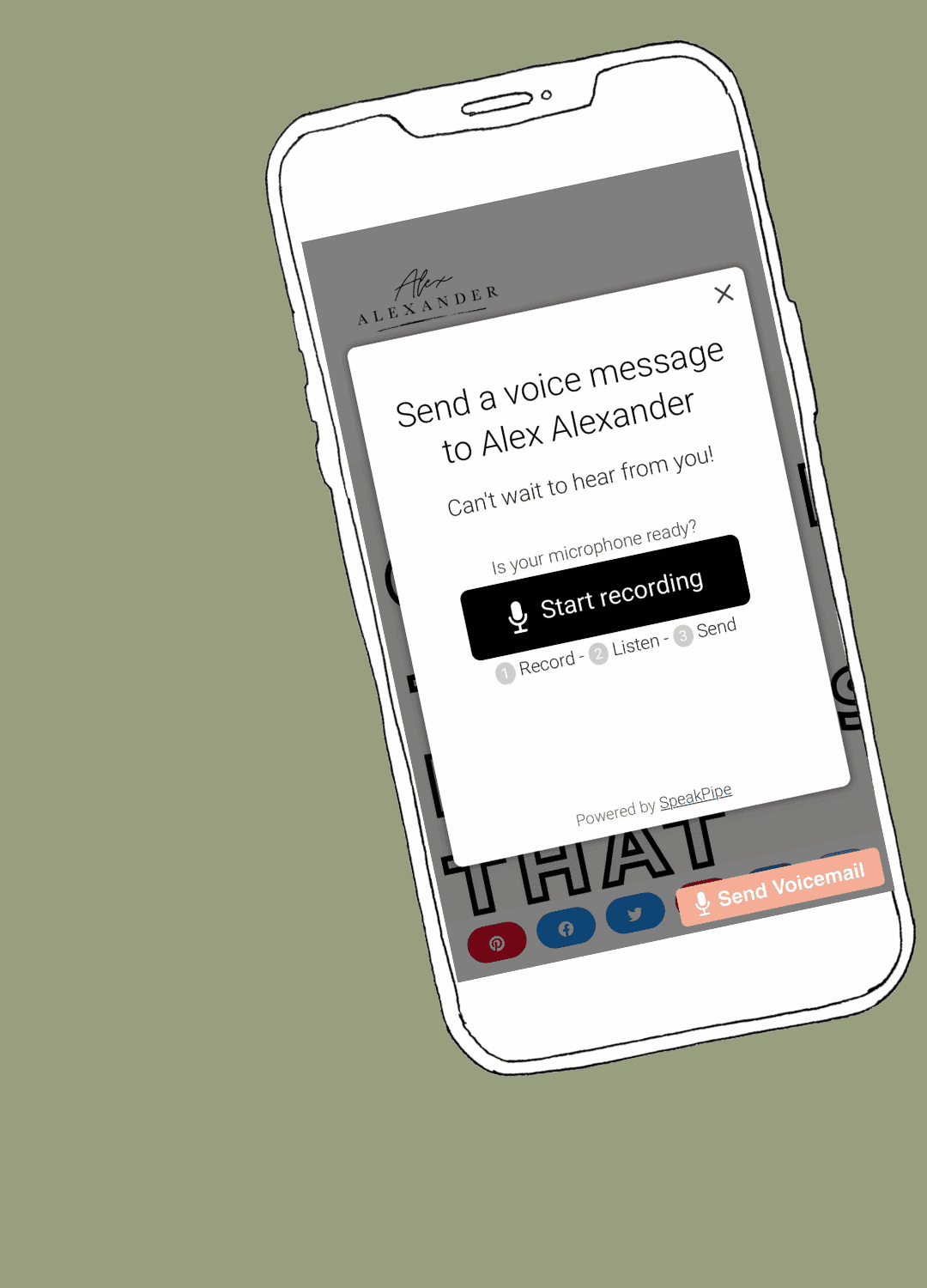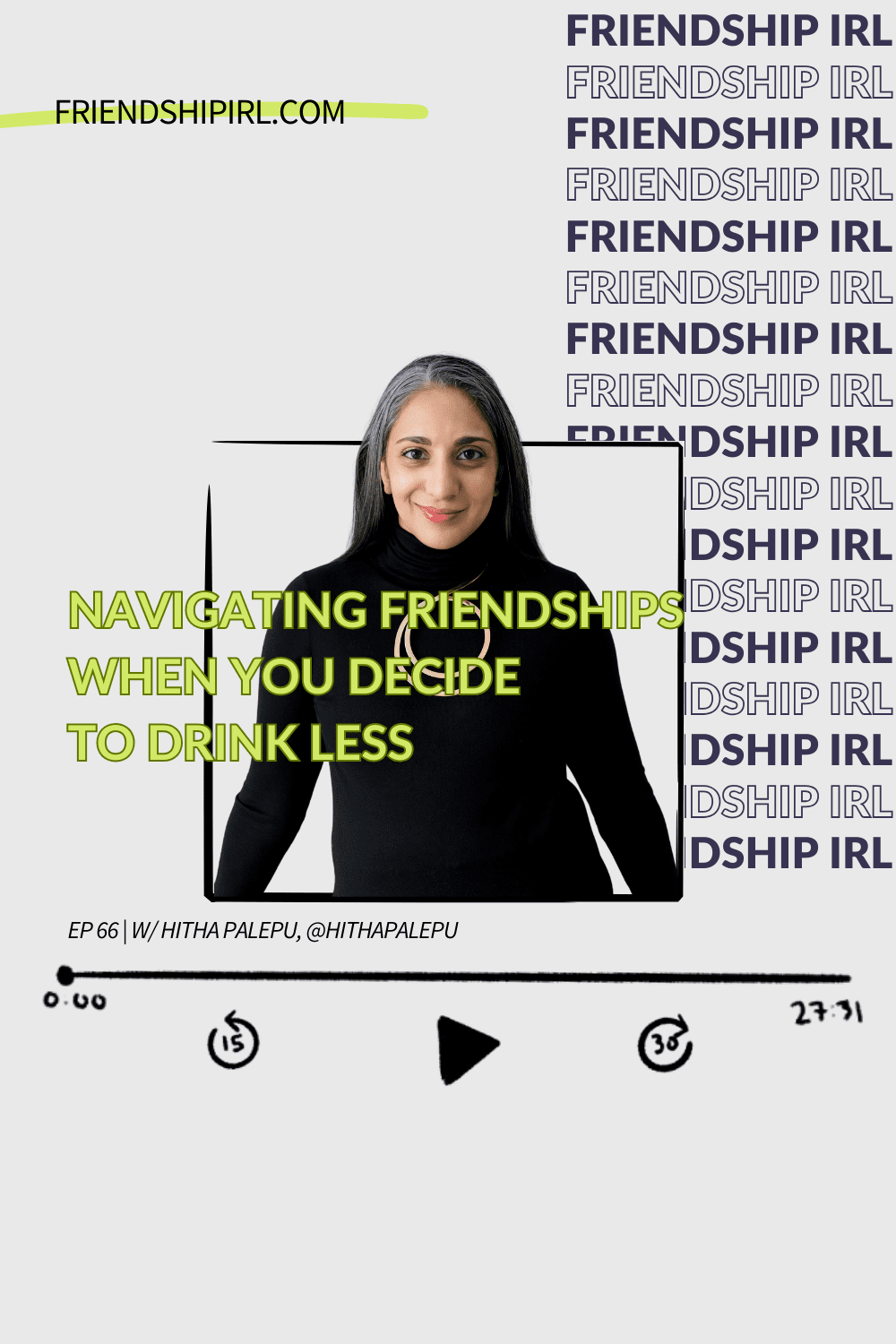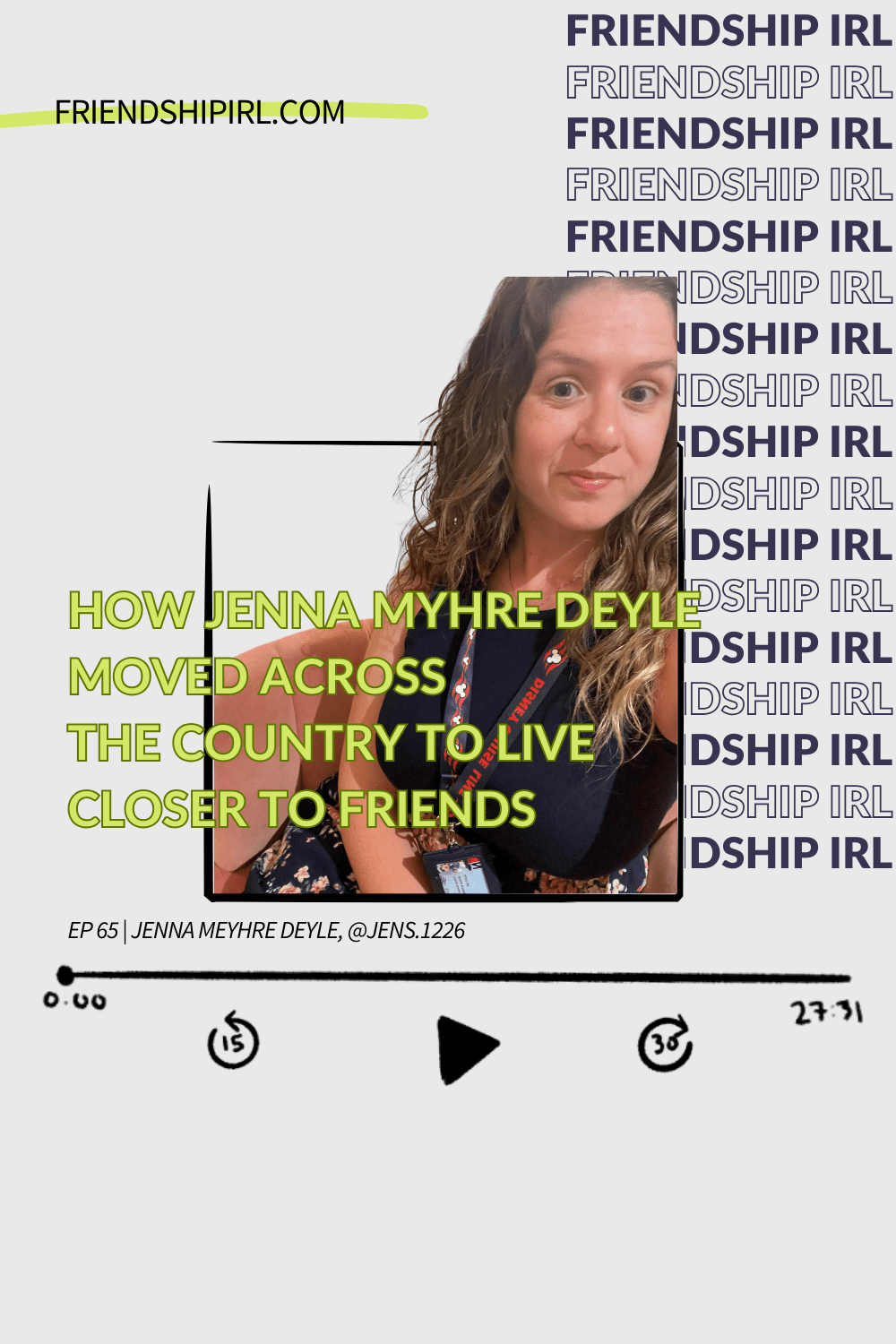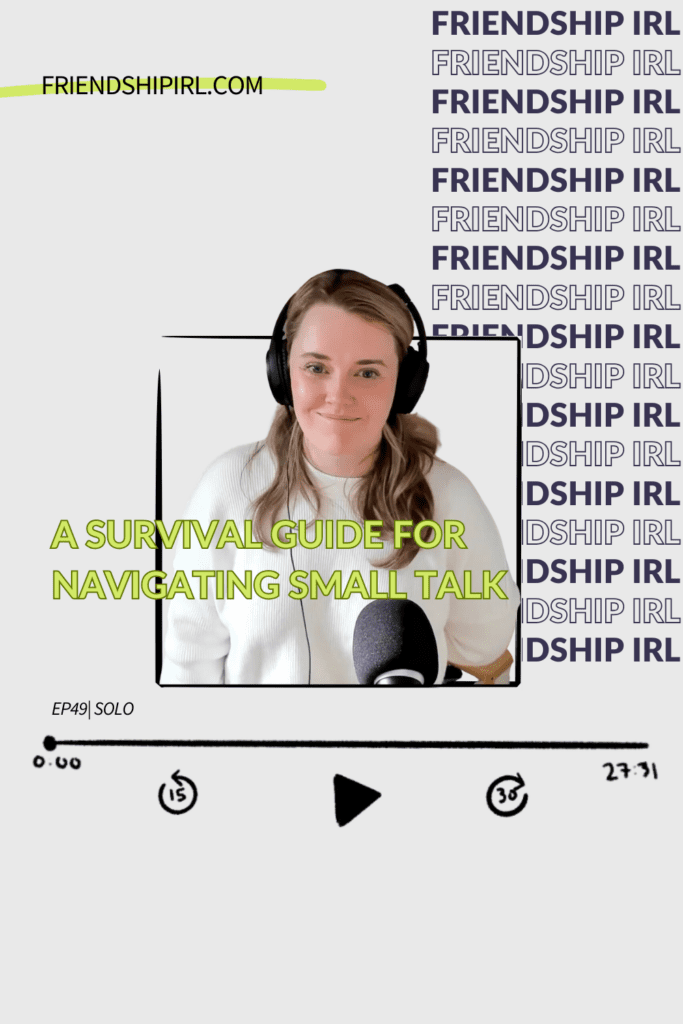
Podcast Description
If you’re getting out there and meeting new people, there’s no getting around the fact that you’re going to have to do some small talk.
I don’t think I’ve met a single person who’s told me they truly enjoy small talk. Many go to extreme lengths to avoid it. One reason people despise it? It’s Ground Zero. Our brains are wired for familiarity and certainty. Small talk is neither.
But as with most things, the more you do it, the better you get at it. I dread small talk, and I’m an extrovert – but over time, I’ve built that muscle and developed a few tricks I hope you find useful.
So that’s what today’s episode is all about. Small talk: what it is, why it’s necessary, and how to get through it fast, effectively and curiously so that you can get to those deeper and, frankly, more interesting conversations.
In this episode you’ll hear about:
- Small talk – what it is, who it’s with, what it’s about, and why it often feels uncomfortable
- Looking at small talk in relation to working out (it’s a warm-up) or a long run (it takes a few miles before getting to the runner’s high/deeper conversations)
- Ways to make small talk feel less awkward – for example, just being honest and acknowledging the awkwardness!
- Questions to ask yourself before going into a gathering that will involve small talk such as, why am I here? What will make this gathering a success for me?
- Finding common threads, ripping the band-aid off, and using low-priority topics as building blocks for high-priority ones
- Setting yourself up for success in small talk (and setting other people up for success, too) – plus, how to get OUT of small talk
Reflection Question:
What is the moment you dread most with small talk? Is it starting the conversation? Exiting the conversation? Or just finding something to talk about? Which of the techniques suggested in this episode do you think will be most helpful for you?
Notable quotes:
“Small talk is basically kind of a warm-up. There aren’t many parts of life where we just show up to the workout and dive right in. Go lift the heaviest weights. Throw a bunch of plates on the squat rack. Look at me talking like I know the gym. But we pretty much always, in all areas of life, kind of have a warming up period. Now, with our oldest, closest, friends or closest people, that might be more catch-up than small talk. I think a lot of us prefer that because there’s some familiarity there. We know the kinds of questions to ask. We have some background. We feel comfortable. But small talk is basically the same thing.”
“You have to go on the first run. Every time you want to go on a training run after that, you have to lace up your shoes, and you have to get out the door, and dread the first few minutes before you find that runner’s high. But we do it. We trust that eventually it will feel good. And there’s not a lot of trust with small talk that it will ever feel good. Or we just never allow ourselves to be repetitive enough with it. To develop the skills and habits and mindsets necessary to feel like even though those first few minutes of the run, or that small talk, feels a little bit uncomfortable, that it’s the necessary evil that will get us to the runner’s high, or, in this case, to the deeper conversations.”
Leave Alex a voicemail!
Until next time…
Take the conversation beyond the new podcast on friendship! Follow Alex on Instagram (@itsalexalexander) or Tiktok (@itsalexalexander), or send her a voice message directly with all your friendship thoughts, problems, and triumphs by heading to AlexAlex.chat and hitting record.
Episode Transcript
Podcast Intro/Outro 00:02
Alrighty, gang. Here’s to nights that turn into mornings and friends that turn in family. Cheers!
Podcast Intro/Outro 00:18
Hello, Hello, and welcome to the Friendship IRL podcast. I’m your host, Alex Alexander. My friends… They would tell you; I like to ask the hard questions. You know who I am in the group? I’m the person that’s saying, “Okay, I’m going to ask this question, but don’t feel like you have to answer it.” And now, I can be that friend for you, too.
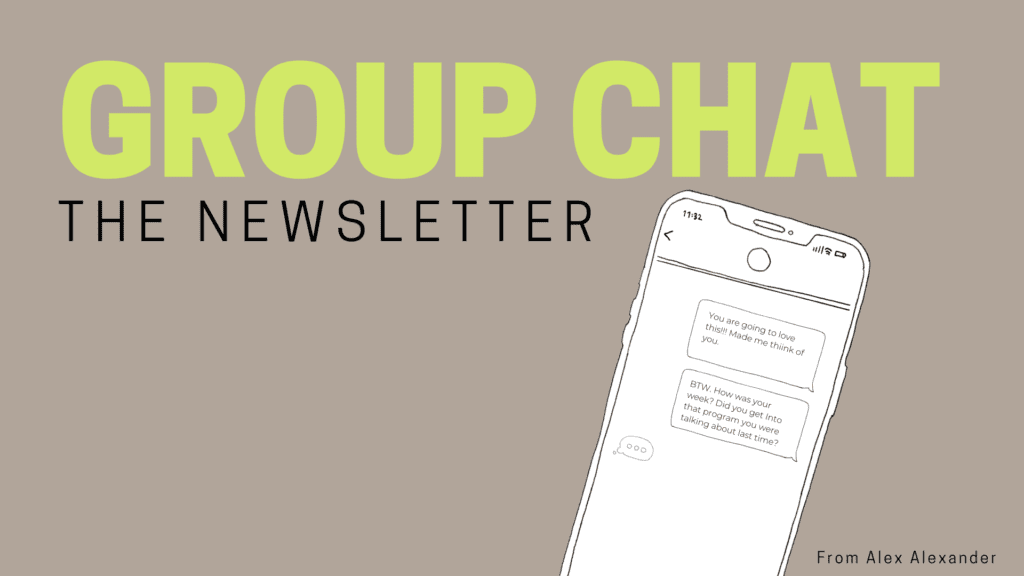
CAN I ADD YOU TO THE GROUP CHAT?
DON'T MISS AN UPDATE - SIGNUP FOR OUR WEEKLY NEWSLETTER.
You’ll get the full scoop on everything we’ve been up to in the last seven days – podcast episodes, blog posts, and updates, plus an exclusive note from Alex every week with her latest, unedited thoughts.
Alex Alexander 00:50
Today, I want to talk about the weather. The rain has been wild here in Seattle. Absolutely absurd. I was on a podcast recording two days ago. And as I was recording, the rain was so loud. I’ve never seen rain this bad. I swear that my podcast guest could one hear it, too. I was worried it was gonna take out my windows. What’s the weather been like where you live? No, I don’t actually want to talk about the weather. But I do want to talk about small talk. I want to talk about small talk, because I have spent a lot of episodes recently talking about the importance of putting yourself out there, making new friends, connecting with people around you. You listen to my liking gap episode, I’ve talked about interacting with acquaintances, and strangers and people. As you go about your day in day to day life, I’ve recorded episodes about third places, which are the places you go to interact with people around you. So if you are out there meeting the people and doing the thing, you’re gonna have to have some small talk. And I know that pretty much everyone despises small talk. I don’t know if I’ve met a single person who’s ever told me that they really truly enjoy it. If that is you, send me a message. Come on the podcast, let’s talk about it. Because most people really, truly dread small talk, and will go to extreme lengths to avoid it. So today, I want to talk a little bit about the reality of small talk, some tips that I have to make it a little less terrible. And then the two routes that I go when I have to partake in small talk. So to start, what is small talk? Well, small talk is the informal polite conversation we have with people that we don’t know well. And it often focuses on unimportant or trivial topics, such as the weather. Hence, my little example at the beginning of this podcast. Now, normally, as I just said, this is a conversation we have with people we don’t know well. But I want to pop in and just say, sometimes, we have small talk that we do with people that we actually do know quite well, or feel as if we should know them quite well, maybe a super extended family member, that you have this feeling of, but were family, and then you’re sitting there spending the entire time partaking in small talk. So in those cases, where having this trivial conversation doesn’t align with our beliefs, it can be even worse to be having small talk. Now, small talk is basically kind of a warmup. There’s not many parts of life, where we just show up to the workout and dive right in. Go lift the heaviest weights, throw a bunch of plates on the squat rack. Look at me talking about like I know the gym. But we pretty much always, in all areas of life, kind of have a warming up period. Now with our oldest closest friends or closest people, that might be more catch up than small talk and I think a lot of us prefer that because there’s some familiarity there. We know the kinds of questions to ask. We have some background, we feel comfortable. But small talk is basically the same thing. And we love the catch up conversations. Again because there’s that history because there’s the memories and the small details we know about each other. We like catch up because we are not starting at ground zero. None of us like to be a beginner at anything ever. It’s uncomfortable. And that’s what small talk is. Small talk is connecting with someone when your relationship is at zero.
Alex Alexander 05:14
And I’m making that comparison, because in a lot of areas of life, we realize that just showing up and doing the thing, that eventually it’ll feel good. That if you’re gonna go on a run, you have to go on the first run. And every time you want to go on a training run after that, you have to lace up your shoes, and you have to get out the door, and dread the first few minutes before you find that runner’s high. But we do it. We trust that eventually it will feel good. And there’s not a lot of trust with small talk that it will ever feel good. Or we just never allow ourselves to be repetitive enough with it to develop the skills and habits and mindsets necessary to feel like even though those first few minutes of the run, or that small talk feels a little bit uncomfortable, that it’s the necessary evil, that will get us to the runner’s high, or in this case, to the deeper conversations. So if you are somebody who is not going to functions, is not putting yourself out there, because you want to avoid small talk. If you are somebody who does not ever say hi to the people around you as you move through your day, because you want to avoid small talk. If you are somebody who goes to a gathering, and only talks to the people that they know, because you want to avoid small talk, which probably at this point is every single person listening to this podcast, because as I said, I don’t know a single person who likes small talk. I am really excited to share this episode with you. I think that everyone feels awkward in small talk. Because we’re beginners, because we’re at Ground Zero. We don’t like that. Our brains are wired for familiarity, and certainty. And small talk is neither. We don’t know the person we’re talking to. And we have no basic knowledge about them normally. So, everyone feels awkward. And although I find a lot of people try and say like, “Oh, well, I’m just an introvert, but extroverts love small talk or… people use me as an example. People, I think, assume that I like small talk, because I’m a pretty extroverted person. I don’t. I show up to every gathering. This just happened a couple weeks ago, I walked in to a meeting with a bunch of people where I only knew one person, and she was the host. So, she’s busy talking to other people. There are name tags. Name tags. I have to put my name down, which means people definitely don’t know me. And I panic for a moment every time. Even though I know I’m going to be dressed fine, that’s my brain freaking out. Because it doesn’t know what’s about to happen, what conversations I’m about to have, who I’m about to talk to, what their story is. So, it panics. I think that at some scale, that happens to all of us. Now, people that have social anxiety, it’s going to be worse. And this isn’t an episode about that. I just want to acknowledge it’s not that the level of panic is the same. It is that we are all panicking on some level. So if you walk around the room, and you think that everybody else is just fine, and you’re the only one panicking, stop making that assumption. Also go back and listen to my liking gap episode because your brain is tricking you and people do like to talk to new people. Studies show that we find it enjoyable. But today’s episode hopefully will make you realize that this is a little bit of a muscle that you can also do this. You can show up to the gathering and panic a little bit but have some tools in your toolbox to feel confident that you can make it through this small talk stage and get to know a little bit about some people in the room, hopefully move out of that feeling like a beginner starting from ground zero. Because even once you have one or two of those small talk conversations, at least you have some basic familiarity with those people and your brain feels a little better. Now, I’ve mentioned, I said, right, everybody feels awkward. But part of the reason we’re all being so awkward is because we’re trying to pretend that it’s not awkward. So instead, consider being honest. Talking about a level of awkwardness. You can say something like when you meet somebody, you walk up to them like, “Oh, hi. My name is Alex, it’s so nice to meet you. I actually don’t know anyone here. It seems like a lot of people know each other.” Being honest, can lead to more meaningful small talk. Because you’re making the stakes higher, I’m going to talk a little bit about low versus high priority, you’re now making this high priority, you are telling somebody else, “I’m a little nervous. This is awkward.” And you’re creating space for them to have a little bit more meaningful conversation than the weather, when they can say, “Oh, there are a few of us who know each other hear from college.” So and so so and so, so and so. By being honest, you have opened the door to a more meaningful conversation. Now, maybe you say I don’t know anybody here, but it seems like a lot of people know each other. And they could say, it does seem like that. I also don’t know anybody else here, which now makes this again, feel like a little bit more of a connected conversation. So acknowledge the awkwardness, be honest about it. Don’t try and hide it, which maybe it was our first tip. And I just didn’t say that. Because it kind of is a tip. I didn’t mean it to be but it is. So now I want to talk about some of my tips, the ways I approach small talk, because it’s not that I enjoy it. It’s just that I think it’s a skill set or a habit. And it’s a muscle you build up, you get used to doing it. So here’s some of the things I’ve done. The first one is to go in prepared. And you might think to yourself, Alex, you just talked about how we’re going in and we have no familiarity, no idea what we’re walking into. So, how can you prepare? Well, prepare yourself. When I go to a function where I don’t know anybody. I sit in my car, or you could stand outside, whatever. I pause somewhere. And I asked myself two questions. The first one is, why am I here? Which may sound like a simple basic question. But there was some reason you’re going because maybe you want to meet new people, you’re going because you have an interest in fly fishing. And other people here have an interest in fly fishing, you’re going because you want to feel more connected in your neighborhood, you’re going because you adore this friend, and you want to support them at this function. There’s a reason you went to this. Otherwise, I don’t know why you went. Like something got you out of the door. What is it? And that’s important to know, because then you can go in knowing what makes this successful for you. Quite often, we leave the host with the full responsibility of making a gathering meaningful. But you can determine what makes this meaningful to you. So if the point is to get to know other people who enjoy fly fishing because you love it, and you don’t have anybody in your life who does, then it would be successful. Maybe, perhaps if you went in and you just got to spend an hour talking about fly fishing. That’s success.
Alex Alexander 13:50
Maybe you take it a step further. And the goal is to determine if this is the right place for you to keep coming back to every week to talk about fly fishing. Maybe success is getting to connect with one or two people and trying to stay in touch with them, like getting their contact information. Any of those could be the answer to what makes us successful. I won’t know that for you. If you’re going to a party, say a Christmas party because you want to support a friend, you want to show up for a friend. Then maybe some ways that this would be successful would be you getting a few minutes to connect with your friend. Another example of what might make it successful could be connecting with their closest people that you haven’t seen in a while. A friend of a friend that you enjoy their spouse, their kids, their parents that are going to be at this party. Maybe success would be just leaning into the joy and the cheer and the fun and the activities and walking away feeling like you really let loose on the dance floor. Again, you define what is successful. The reason I think this is helpful when it comes to small talk is because then it gives you something to focus on. So if you were standing in the corner feeling awkward, because you don’t know anybody to talk to, but you walked in and decided that getting to speak to your friend’s parents that you haven’t seen in years, is what makes tonight successful, then you know what to do. Go walk up to those parents and talk to them. It gives you a little bit of a guide for what’s going to make this meaningful for you. Now, the second way you can prepare is to consider the common threads that you have walking into that room. In the case of fly fishing, you all like fly fishing, I hope. But you’re all maybe outdoorsy people. Maybe a friend used to be a member of this group, but isn’t anymore. Perhaps you know that a lot of members of this group overlap with a hunting group that you’re a part of. Go in knowing your common threads. And I’ll tell you a little bit later why that’s important, why that’s helpful. My second tip is when you go inside, try and enter your first conversation with somebody as quickly as possible. Don’t overthink it, just start talking to someone about anything if you’re that nervous. Like just start talking to someone. It could be about your shoes, it could be about the weather, it could be anything, just start talking to someone. Because the more that you stand on the outskirts by yourself, the more you overthink it. And you just need to rip the band-aid off and talk to your first person. For me personally, that tip is my most impactful. I get inside I write my name on the name tag, I try and talk to the first person. I possibly can as quickly as possible. My next tip is if you’re inside, and you know no one, remember that anyone else who doesn’t know anyone is panicking. But if you do know people, remember to be inclusive. Invite people in, make eye contact with people who are standing on the outskirts. Perhaps ask the host about who that person is over there, how they know them, because then that sets you up when it comes to small talk, to walk over to said person and say, “Hey, Bevin told me that you two went to college together. Did you graduate the same year?” You can set this up for better small talk.
Alex Alexander 17:46
Bonus points. If you are making small talk, or you’re at a function where you know a lot of people who are having to make small talk is to make better introductions for people, set people up for success. When you introduce Josie to Rob, say, “Oh my gosh, you both love traveling, you went to Europe last year, you should tell each other about your experiences in Athens, because you both had been there recently.” Set people up for success when it comes to small talk. Because if you can start setting that example, hopefully people will set you up. My final tip is to be okay with calling it. This is kind of similar to that be honest about it being awkward. But a lot of times, I think the worst thing about small talk is that it’s hard to get out. Because you don’t want to offend the other person. But if we go back to that idea of being honest about the fact that it’s awkward, you can say something like, “It was so nice to meet you. I know that small talk at things like this can be so exhausting. So, I’m just gonna give you a minute and I’m gonna go see if Bevin needs help getting dinner on the table.” Like just acknowledge this is tiring. And then give yourself an hour. I mentioned a little earlier in the episode, this idea of high and low priority topics. So I think part of the reason that people really dislike small talk, is because people get stuck in low priority topics, whether the fact that there were street closures as you drove to this party compared to high-priority topics, like somebody’s passions or interests, memories, but just like how we have to start at ground zero, have some small talk and then maybe we can feel more connected to someone. When having small talk, we have to start with the very foundational stuff. You have to start with the low priority topics. But then you can use those low-priority topics to build off of to get to the high-priority topics.
Alex Alexander 20:12
So if you’re struggling with small talk, be mindful of whether that is because you are continually staying in the low-priority topics. So for example, if you just keep talking about weather, you just keep going. You could be stuck in low priority for a really long time. Nobody really cares. But if you were talking about the weather, and then you said to someone, “Yeah, how’s the weather kept you from doing any activities you really love lately?” That now enters more of that high priority, more interesting, small talk. Versus just staying in the, “Oh, yeah, the weather. It’s been raining a lot. Did you see next week?” Use that as a building block. So when you enter the small talk, be on the lookout for ways to ask the topics that are the questions that are more interesting to people. Another example of this low priority would be like, “What did you do this weekend?” They would answer, “Oh, I went to a concert.” If you continue in the low priority, that’s gonna get old. But if you use that to say, “Oh, is this a band that you’ve loved for a while or a new band?” They tell you that they’ve been following this band for years. “Was this concert better than the last one you went to?” Now, we are entering more high-priority, high-interest, small talk.
Alex Alexander 21:51
Those are my main tips for small talk as somebody who doesn’t like small talk, but has figured out that there’s a little bit of an art to it. I also think that there are two types of small talk, or maybe two routes to go in small talk. I think distinguishing those is very helpful for people. So first is the find common ground small talk. And this I think is what most people do. They want to find something that is similar about the other person. So you are talking to somebody, it’s like, “Oh, did you do anything fun this last weekend?” I think we can use that to try and find similar things that we did. You were looking for, “Oh, you know, my kid is in soccer and your kid is in soccer. My kid is learning to drive your kid is learning to drive. I’m traveling to Greece, you have traveled to Greece.” We’re trying to find similar things. You can totally go this route. It’s a great route to go. One way to expedite this, to help you with this is to not only ask questions but offer something up. So when you’re in that low priority stage, you can say, “Oh, you know, I went to the zoo this last weekend. What did you do?”
Alex Alexander 23:11
Because now you have given the person you’re talking to two options. Option one, they can jump off from the zoo. Maybe they like the zoo, maybe they’ve been to the zoo. Maybe they don’t like the zoo. Maybe they’re really active volunteers for some other animal organization. I don’t know, you’ve given them an option to go that way. The other option is they can tell you what they did this weekend, even if it’s completely different. So either way, you have offered basically this other person two routes of finding common ground, whichever one sounds better to them. Another common ground tactic, I suppose, is I talked earlier about thinking about your common threads. So when you meet someone, tap into your common threads, you’ve already thought about them. You are at this gathering because you were both invited by the same host. So then it’s easier to say, “Oh, how do you know Bevin?” who’s the host of the party.
Alex Alexander 24:16
Perhaps you flew in to a conference together. Well, not together, you both flew into the same conference. You know that nobody is really local at this conference. And you can say, “Oh, where are you from?” Perhaps you know that the party you’re at is hosted every year, but this is the first year you’re attending. So then you can say things like, “Oh, did you attend last year’s party?” If they say yes, you can say, “Oh, anything funny happen last year because I already have funny stories I’m going to tell next year.” And now you’ve given them the opportunity to tell some funny stories from last year. Another common ground is just sticking with those low-priority common ground questions. What did you do last weekend? Any fun plans this year? What have you been up to this summer? Do you have a lot of holiday parties, right? We are all in the same season of the year, a lot of the same stuff is happening. But then the hope would be that you take those and build off them into something a little more interesting. The second route I think of when it comes to small talk, is instead of finding common ground, to go into the small talk with the idea that you’re going to be curious.
Alex Alexander 25:33
So in this route of small talk, you’re a little less focused on finding common ground, and you are way more focused on finding something that the person you’re talking to is interested in. That could be fly fishing, chess, books, knitting, the Gilmore Girls, I don’t care. It could be anything, but you are trying to find something that they’re interested in. Which means you’re gonna have to ask some of those low-priority questions to get to that topic. I have an example of this. We had some friends, coworker of my husband’s over for dinner, and her husband. We had met very casually a couple of times, but we didn’t know him very well. And we just started asking, you know, “Oh, what did you do last weekend?” They had gone to a concert, “What kind of concert?” Turns out was a metal concert. “Oh, do you go to a lot of metal concerts?” Yes, he’s in a metal band. And then you found something that the other person is interested in. And although I am not that interested in metal music, I do know some of it because I grew up listening to a little bit of it. But it’s not something I listen to every day. But it’s less about me finding common ground, and more about just enjoying the fact that you get to learn from someone about something they’re really passionate about. There’s that saying that people remember how you made them feel. For all the awkwardness you might feel in small talk, a person on the other side of the conversation, who gets to talk about their passion is going to feel so seen. You could have made a million awkward remarks, you could have fumbled your words, you could have asked a question that they pivoted from. At the end of the day, if they get to spend some time really telling you about something they care about, that’s what they’re going to remember. So the ‘be curious’ route is actually one of my favorite. Because I think it takes a little bit of pressure off of me to find that common ground. And it’s more about finding something that makes someone else really excited to talk. The other thing I find in the be curious route is you learn so much, maybe I’m just a knowledge junkie. But I love talking to people about the things that they’re passionate about. Because I always walk away with a new perspective or a new fun fact that I never ever would have known. And they walk away feeling like they got to share something they really love. And both of us can feel pretty confident that it was a positive interaction, which is really what we want. At the end of the day, part of the reason Small talk is so awkward is because we don’t know how the other person perceived it. And we want to come off looking good. We want the other person to have enjoyed the interaction. So if you can go into this with some tools and some tactics and some confidence that one way or another, you can move through the awkward as fast as possible, that you can start to identify those low priority topics and how you might dive a little deeper into some high priority, you know, I’m talking like high priority small talk. This is not high priority deep conversation. Then again, talking about the weather on repeat. And now maybe the you have these two routes, you can even use those at your next function where you need to partake in small talk, and go back and forth. Test one versus the other. Maybe one feels more comfortable to you than the other one.
Alex Alexander 29:54
Maybe you like them both. Maybe one is mentally easier. So when you’re tired and you gotta go somewhere in small talk, you’ll lean into that one. But give these a try when you’re out there in the world, talking to strangers making new friends, battling your brain in the liking gap, and participating in your third places. Use these as a way to practice the skill set that is small talk and develop that muscle so that you can go do the thing.
Podcast Intro/Outro 30:29
Thank you for listening to this episode of Friendship IRL. I am so honored to have these conversations with you. But don’t let the chat die here. Send me a voice message. I created a special website just to chat with you. You can find it at alexalex.chat. You can also find me on Instagram. My handle, @itsalexalexander. Or go ahead and leave a review wherever you prefer to listen to podcasts. Now if you want to take this conversation a step further, send this episode to a friend. Tell them you found it interesting. And use what we just talked about as a conversation starter the next time you and your friend hang out. No need for a teary Goodbye. I’ll be back with a new episode next week.

